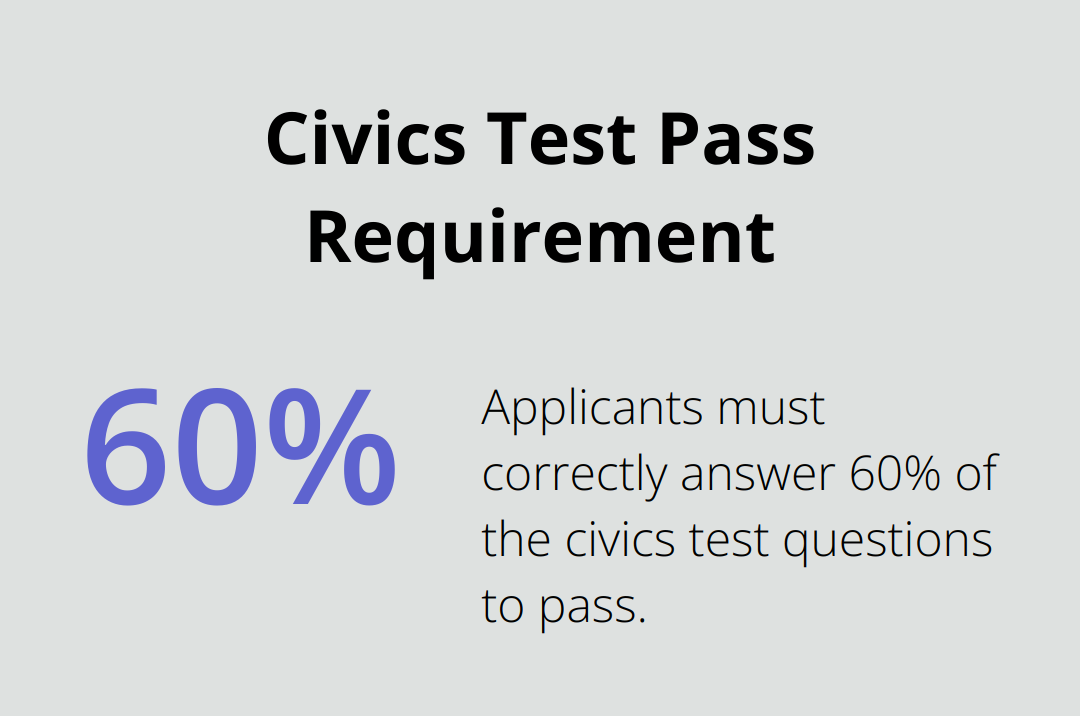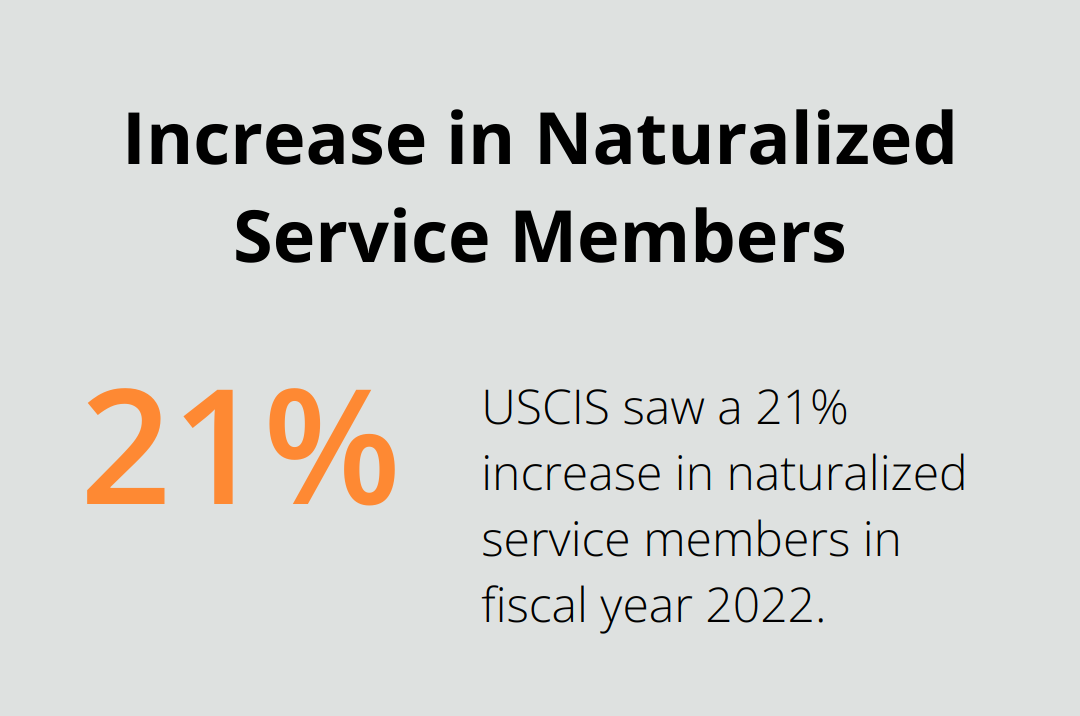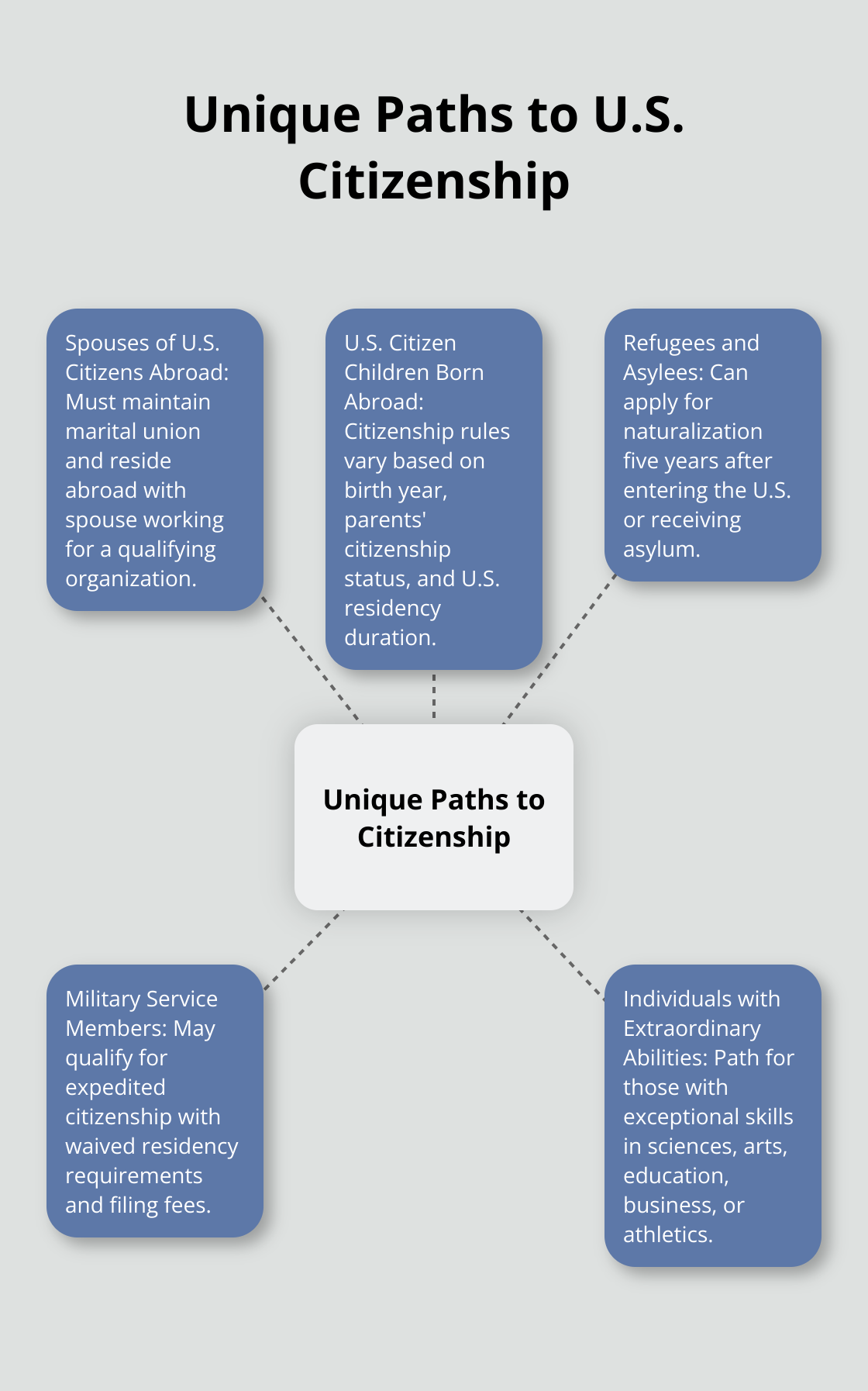
Naturalization Exceptions: What You Need to Know
Becoming a U.S. citizen through naturalization is a significant milestone for many immigrants. However, the process can be complex, with various requirements and exceptions to navigate.
At Law Offices of Jeffrey A. Thompson, we understand that naturalization exceptions can greatly impact an individual’s path to citizenship. This blog post will explore these exceptions, helping you understand how they might apply to your unique situation.
Key Naturalization Requirements
Eligibility Basics
U.S. Citizenship and Immigration Services (USCIS) sets specific criteria for naturalization. Applicants must be at least 18 years old and have been lawful permanent residents for at least five years (or three years if married to a U.S. citizen). USCIS assesses good moral character through background checks and conduct during the application process.
Residence and Physical Presence
USCIS requires continuous residence in the U.S. for at least five years before application. Absences shorter than six months typically don’t break continuity, but longer absences may require additional documentation to prove residence maintenance.
Physical presence is equally important. Applicants must have been physically present in the U.S. for at least 30 months out of the five years preceding their application. USCIS offers an eligibility calculator on their website to help determine if this requirement is met.
Language and Civics Tests
The naturalization process includes an English language test that assesses an applicant’s ability to read, write, and speak basic English. USCIS provides study materials on their website, including vocabulary lists and practice tests.
The civics test covers U.S. history and government. As of 2025, applicants must correctly answer 6 out of 10 questions from a pool of 100 questions. USCIS updates these questions periodically, so it’s important to use the most current study materials.

Preparation Tips
Many applicants experience test anxiety. To combat this, we recommend:
- Start preparation early
- Use USCIS’s free preparation classes (if available in your area)
- Practice with official USCIS study materials
- Consider seeking assistance from experienced immigration attorneys (like those at Law Offices of Jeffrey A. Thompson)
While these requirements may seem challenging, exceptions and accommodations exist for certain situations. The next section will explore these exceptions in detail, helping you understand if you might qualify for any special considerations in your naturalization journey.
Who Qualifies for Naturalization Exceptions?
Naturalization exceptions can significantly impact an individual’s path to U.S. citizenship. Many applicants may qualify for these exceptions but remain unaware of their eligibility. Let’s explore some common naturalization exceptions and how they might apply to your situation.
Age-Based Exceptions
USCIS offers specific accommodations for older applicants. If you’re 50 years or older and have been a permanent resident for at least 20 years, you may qualify for the “50/20” exception. This allows you to take the civics test in your native language.
Similarly, if you’re 55 or older with 15 years of permanent residency, you might qualify for the “55/15” exception. Both these exceptions can make the naturalization process less challenging for older applicants.
For those 65 and older with 20 years of permanent residency, USCIS provides an even more simplified civics test. You’ll only need to study 20 questions instead of the standard 100, and you’ll be asked just 10 during the interview.
Military Service Exceptions
U.S. military service can accelerate your path to citizenship. If you’ve served honorably in the U.S. armed forces, you may qualify for expedited naturalization. This includes waived residency requirements and filing fees.
According to USCIS data, in fiscal year 2022, USCIS naturalized 10,600 service members, an almost 21 percent increase from the previous year.

Disability Accommodations
USCIS provides accommodations for applicants with disabilities. If you have a physical or developmental disability or mental impairment that prevents you from meeting the English and civics requirements, you may qualify for a waiver.
To request this exception, you must submit Form N-648, Medical Certification for Disability Exceptions. A licensed medical professional must complete this form, detailing how your condition affects your ability to meet the standard requirements.
Continuous Residence Exceptions
Certain applicants may qualify for exceptions to the continuous residence requirement. For example, employees of specific U.S. organizations (such as the U.S. government or American research institutes) who work abroad may preserve their continuous residence status for naturalization purposes.
Physical Presence Exceptions
Some individuals may qualify for exceptions to the physical presence requirement. This includes certain employees of U.S. companies engaged in the development of foreign trade and commerce, as well as religious workers employed by a recognized U.S. religious organization.
While these exceptions can simplify the process for many applicants, they don’t guarantee approval. It’s essential to work with experienced immigration attorneys who can guide you through the intricacies of these exceptions and ensure you present the strongest possible case to USCIS. In the next section, we’ll explore some special naturalization cases that may apply to your unique situation.
Unique Paths to U.S. Citizenship

Spouses of U.S. Citizens Abroad
U.S. citizenship remains possible for individuals married to U.S. citizens and living overseas. This process presents unique challenges. Applicants must meet specific criteria:
- Maintain a marital union with their U.S. citizen spouse
- The U.S. citizen spouse must work abroad for a qualifying organization
- The applicant must reside abroad with their spouse due to this employment
Applicants should maintain meticulous records of their time abroad and their spouse’s employment to support their case.
U.S. Citizen Children Born Abroad
Children born outside the U.S. to U.S. citizen parents often acquire citizenship automatically. However, the rules vary based on several factors:
- The child’s birth year
- Citizenship status of one or both parents
- Duration of the U.S. citizen parent(s)’ residence in the United States
For children born after February 27, 1983, at least one U.S. citizen parent must have lived in the U.S. for five years (with at least two years after age 14) before the child’s birth.
Refugees and Asylees
Refugees and asylees follow a distinct path to citizenship. They can apply for naturalization five years after entering the U.S. as a refugee or five years after receiving asylum. Key points include:
- Time as a refugee or asylee counts towards the five-year permanent residence requirement
- Continuous residence and physical presence requirements apply
- Applicants must show good moral character
Military Service Members
U.S. military service can expedite the citizenship process. Service members may qualify for:
- Waived residency requirements
- Exemption from filing fees
- Expedited processing of their applications
(This option proves particularly beneficial for non-citizen service members seeking to solidify their status in the country they serve.)
Individuals with Extraordinary Abilities
The U.S. offers a path to citizenship for individuals with extraordinary abilities in sciences, arts, education, business, or athletics. This category includes:
- Nobel Prize winners
- Olympic athletes
- Renowned researchers or artists
Applicants must demonstrate sustained national or international acclaim and that their contributions will substantially benefit the U.S.
Final Thoughts
Naturalization exceptions play a significant role in the U.S. citizenship process. These exceptions address various circumstances, from age-based accommodations to military service benefits. The complexity of immigration laws underscores the need for expert guidance tailored to individual situations.
Law Offices of Jeffrey A. Thompson specializes in navigating the intricacies of immigration law, including naturalization exceptions. Our team provides knowledgeable and dedicated legal representation to support clients through their citizenship journey. We help applicants understand how exceptions might apply to their unique cases.
Presenting a strong, well-documented case to USCIS remains essential, even with applicable exceptions. Professional legal guidance can increase the chances of a successful outcome in the naturalization process (while ensuring compliance with all requirements). Our experienced attorneys stand ready to assist you in your path to U.S. citizenship.


